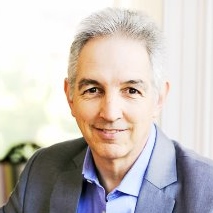
News

Max Price hit by new race row
TALI FEINBERG
While he is adamant that this is in fact not a racial issue, he admits that race has been a constant battle, most recently when the #FeesMustFall protests turned into a racial fight.
“I’m disappointed,” Price told the SA Jewish Report, after the Cape Times drew him into a senior appointment-turned-race-battle on Monday, saying “When former UCT Vice-Chancellor Max Price called to inform a black professor she was unsuccessful in her application for a senior job, he apparently expressed shock at her disappointment, saying he assumed the only reason she applied was because she had been nominated by the Black Academic Caucus (BAC).”
UCT Professor Elelwani Ramugondo is now taking UCT to court to challenge its process of appointing a Deputy Vice-Chancellor for teaching and learning.
The appointment of Lis Lange, a white candidate from Argentina, has caused outrage, with activists saying she did not meet the equity requirements, nor key criteria of the post.
On Tuesday, the Cape Times printed a response from UCT, in which spokesperson Elijah Moholola said that “The insinuation that Dr Price personally could block an appointment is inaccurate. The process simply does not allow it, with a selection committee of over 20 independent representatives. Dr Price was also not the chair of the committee.
“UCT reiterates that we believe the selection process was rigorous, fair and transparent. The selection committee included representatives of multiple constituencies, and was demographically very well represented. The committee agreed overwhelmingly that the successful candidate was appropriately qualified and deserving of the job.”
In previous statements on the appointment, Price said: “The BAC’s argument also assumes that a white person cannot drive a transformation agenda. We reject this view, and in this particular case, Associate Professor Lange has years of experience in transformation in other universities and across the sector as a whole.”
He said he was disappointed “because I unequivocally deny expressing such thoughts to Professor Ramugondo. We have always had a good relationship, and she was an advisor in my office. I’m [also] disappointed that the Cape Times has misconstrued this as something personal, when it was a committee decision that has been re-endorsed by council. It was a very transparent process, and the person chosen is the best person for the job, who happens to be white”.
The latest row, which Price has construed as a labour issue,contrasts with the very real challenges posed by transformation at the university that confronted Price during his two terms over the past ten years, exploding in the #RhodesMustFall and #FeesMustFall movements that shook the institution to its core. When steering that ship, Price was deeply invested in understanding student grievances, as he wrote at the time. “When UCT removed the statue of Rhodes, this was not a one-off concession to the pressure of student anger. The university made a significant declaration that we wanted to make a decisive break with the colonialist past. We are well aware that this demands that we tackle the elusive but extremely powerful creature of institutional racism.”
In terms of appointing academic staff, Price explained that under his tenure, the university had always chosen the most capable person for both faculty and leadership positions. It has a strong affirmative action policy, but would appoint someone only if they were fully capable of performing the role, while investing heavily in up-and-coming black academics.
“So yes, a white student may find it more difficult to attain scholarships and funding as we try to re-dress the imbalance.” At the same time, “the urban legend that white students cannot get into or succeed at UCT is wrong”, Price said.
“My being Jewish has never been made an issue, and I’ve never encountered any anti-Semitism in my ten-year tenure,” he said. However, he admitted that race issues had been a constant battle, most recently during the #FeesMustFall protests.
“We saw how the movement was influenced by youth leagues and party politics. It started out as a very diverse movement, and we as a university supported it as a way to get [the] government to come on board in addressing financial exclusion at universities.”
The violent protests that followed, and the shutting down of campuses compromised the cause, and students who needed subsidies the most were the ones that suffered, Price said.
Going forward, he believes that the free-education issue has largely been resolved with the government’s December commitment to student subsidies, and he does not predict further violence or shutdowns. This month’s exams will go ahead across campus, and will not be restricted to a tent surrounded by security as they were in November.
Price assures Jewish parents that the University of Cape Town remains an excellent choice for their children’s education. At the end of May, UCT was elected “the best university in Africa”, and leapt 36 places to 223rd in the world, according to the latest report from the Centre for World University Rankings.
While the university has had its up and downs, Price points out that protests and political movements like #FeesMustFall and Israel Apartheid Week are the best preparation for life in the real world.
“It’s a diverse environment, confronting issues of white privilege and the black experience. It may not always be comfortable, but it’s a crucial place to be if you want to play a role in South African society,” he said.




